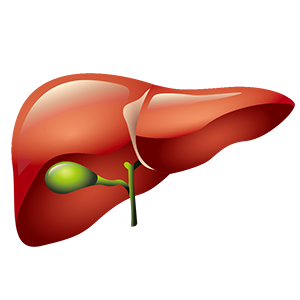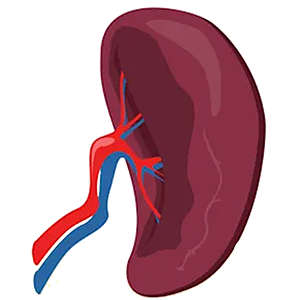Services
Abdominal Trauma
Traumatic Injury to Abdominal Organs : Traumatic injury to the abdominal organs can result from blunt or penetrating trauma, with motor vehicle accidents, falls, and assaults being common causes. The abdomen houses vital organs such as the liver, spleen, pancreas, kidneys, intestines, and blood vessels, making it vulnerable to serious injury. Blunt trauma often leads to organ contusions or lacerations, particularly of the liver and spleen, which are the most commonly injured. Penetrating injuries, such as from stab wounds or gunshots, can result in life-threatening internal bleeding or organ perforation. Symptoms may include severe pain, swelling, tenderness, or shock. Prompt diagnosis through imaging techniques like ultrasound or CT scans is crucial for determining the extent of the injury. Treatment may involve conservative management or emergency surgery depending on the severity, aiming to stop bleeding, repair damaged tissues, and prevent complications like infection or organ failure.

Bowel Perforation : Bowel perforation is a serious medical condition where a hole or tear develops in the wall of the intestine, leading to the leakage of intestinal contents into the abdominal cavity. This can result from various causes, including trauma, diverticulitis, Crohn’s disease, ulcers, appendicitis, or complications from surgery. The escape of bacteria and digestive fluids into the normally sterile peritoneal space causes peritonitis, a severe and potentially life-threatening infection. Symptoms of bowel perforation include sudden, sharp abdominal pain, fever, nausea, vomiting, and signs of shock such as rapid heart rate and low blood pressure. Diagnosis is typically confirmed through imaging studies like X-rays or CT scans, which may show free air in the abdomen, indicating a perforation. Treatment is usually surgical and involves repairing the tear and cleaning the abdominal cavity to prevent infection. Prompt medical intervention is essential to avoid complications like sepsis, multi-organ failure, or death.

Liver Injury : Liver injury is a potentially life-threatening condition, often resulting from blunt or penetrating trauma, such as motor vehicle accidents, falls, or violence. As one of the largest and most vascular organs in the body, the liver is highly susceptible to injury. Blunt trauma can cause liver lacerations, contusions, or hematomas, while penetrating trauma can result in deep wounds that lead to massive internal bleeding. Symptoms of liver injury include upper right abdominal pain, tenderness, bruising, and signs of shock, such as rapid heart rate and low blood pressure. In severe cases, significant blood loss may occur, leading to hypovolemic shock. Diagnosis is typically made using imaging techniques like ultrasound, CT scans, or diagnostic peritoneal lavage. Treatment depends on the severity of the injury, ranging from conservative management with bed rest and monitoring for minor injuries to emergency surgery or embolization for severe cases with active bleeding. Prompt recognition and management are critical to preventing complications such as infection, bile leakage, or liver failure.

Spleen Injury : Spleen injury is a common result of blunt abdominal trauma, such as that from car accidents, falls, or sports injuries. The spleen, located in the upper left abdomen, plays a key role in filtering blood and fighting infections, but its rich blood supply makes it particularly vulnerable to damage. Splenic injuries can range from minor lacerations and hematomas to severe ruptures, potentially leading to life-threatening internal bleeding. Symptoms of spleen injury include pain in the left upper abdomen, tenderness, dizziness, low blood pressure, and referred pain to the left shoulder (Kehr’s sign). Diagnosis is usually confirmed through imaging studies like ultrasound or CT scans, which can assess the extent of damage and internal bleeding. Management of spleen injury depends on its severity; minor injuries may be treated conservatively with observation, while more severe cases may require surgical intervention, including splenectomy (removal of the spleen). Early detection and appropriate treatment are crucial to avoid complications such as hemorrhagic shock or infection. After splenectomy, patients may be more susceptible to infections and may require vaccinations for long-term protection.

Pancreas Injury : Pancreas injury is relatively rare but can occur due to blunt or penetrating abdominal trauma, with car accidents, sports injuries, and stab wounds being common causes. The pancreas, located deep in the abdomen, is essential for digestive enzyme production and blood sugar regulation. Due to its retroperitoneal position, pancreas injuries are often accompanied by injuries to other organs like the liver, spleen, or intestines. Pancreatic trauma can result in lacerations, contusions, or transections, leading to the leakage of digestive enzymes that can damage surrounding tissues. Symptoms may be vague but can include upper abdominal pain, nausea, vomiting, fever, and signs of peritonitis or shock in severe cases. Diagnosis is challenging and often requires imaging such as CT scans or MRIs, as well as enzyme level monitoring. Management depends on the severity of the injury; minor injuries may be treated conservatively with observation, while major injuries involving ductal disruption may necessitate surgical intervention to repair the pancreas or drain fluid collections. Complications can include infection, pseudocyst formation, or pancreatitis, making early diagnosis and treatment critical for preventing long-term damage.
Book An Appointment